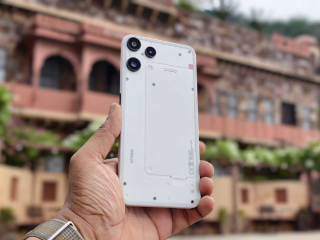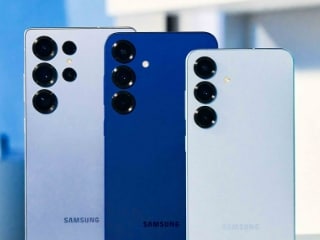OpenAI Faces Backlash from Studio Ghibli, Bandai Namco Over AI-Generated Anime Videos
Japan’s CODA, which represents Studio Ghibli, Bandai Namco, Square Enix, and other publishers, wrote a letter to OpenAI.

Photo Credit: OpenAI
Pictured is a screenshot from OpenAI’s Sora 2 demo
OpenAI has received a written letter from Japan's Content Overseas Distribution Association (CODA) asking the company to stop training its artificial intelligence (AI) models on copyrighted content. CODA is an anti-piracy organisation that represents major Japanese publishing companies such as Studio Ghibli, Bandai Namco, Square Enix, and others. Notably, Bandai Namco is behind works such as Dragon Ball, Naruto, One Piece, and Gitnama, while Square Enix has created the Final Fantasy series. Similarly, OpenAI's image model recently went viral for the Ghibli trend.
OpenAI Told Not to Train AI Models on Copyrighted Anime Content
In a newsroom post, CODA requested that OpenAI not train its Sora 2 video generation model on copyrighted content owned by its members. Additionally, it also told the AI giant to respond to the claims and inquiries made by the members regarding “copyright infringement related to Sora 2's outputs.”
The letter mentions that the agency was able to confirm that a large portion of content generated by Sora closely resembles Japanese content, and it has determined that the issue occurred due to such content being part of its training data. “CODA considers that the act of replication during the machine learning process may constitute copyright infringement,” it added.
CODA also called out OpenAI's initial policy of opt-out. At the launch of the Sora app, the company had told rightsholders to opt out if they did not want the AI model to generate their copyrighted work. This has since been changed to an opt-in policy. The letter stated, “Under Japan's copyright system, prior permission is generally required for the use of copyrighted works, and there is no system allowing one to avoid liability for infringement through subsequent objections.”
Two requests have been made by the agency. First is that OpenAI immediately stops training its AI models on content owned by its members, and second, that the company responds “sincerely” to the claims and inquiries made by the publishing companies.
Notably, in September, Japan's Minister of State for IP and AI Strategy, Minoru Kiuchi, said in a Cabinet Office press conference that the government had sent a formal request to OpenAI not to engage in copyright infringement.
Get your daily dose of tech news, reviews, and insights, in under 80 characters on Gadgets 360 Turbo. Connect with fellow tech lovers on our Forum. Follow us on X, Facebook, WhatsApp, Threads and Google News for instant updates. Catch all the action on our YouTube channel.
Related Stories
- Samsung Galaxy Unpacked 2025
- ChatGPT
- Redmi Note 14 Pro+
- iPhone 16
- Apple Vision Pro
- Oneplus 12
- OnePlus Nord CE 3 Lite 5G
- iPhone 13
- Xiaomi 14 Pro
- Oppo Find N3
- Tecno Spark Go (2023)
- Realme V30
- Best Phones Under 25000
- Samsung Galaxy S24 Series
- Cryptocurrency
- iQoo 12
- Samsung Galaxy S24 Ultra
- Giottus
- Samsung Galaxy Z Flip 5
- Apple 'Scary Fast'
- Housefull 5
- GoPro Hero 12 Black Review
- Invincible Season 2
- JioGlass
- HD Ready TV
- Laptop Under 50000
- Smartwatch Under 10000
- Latest Mobile Phones
- Compare Phones
- Vivo Y19s 5G
- iQOO Neo 11
- Nothing Phone 3a Lite
- OnePlus Ace 6
- Lava Shark 2 G
- OnePlus 15
- Redmi K90
- Redmi K90 Pro Max
- MacBook Pro 14-inch (M5, 2025)
- Asus Vivobook S16 (S3607QA)
- iQOO Pad 5e
- OPPO Pad 5
- Garmin Venu X1
- Redmi Watch 6
- TCL 55 Inch QD-Mini LED Ultra HD (4K) Smart TV (55Q6C)
- TCL 55 Inch QD-Mini LED Ultra HD (4K) Smart TV (55C6K)
- Asus ROG Ally
- Nintendo Switch Lite
- Haier 1.6 Ton 5 Star Inverter Split AC (HSU19G-MZAID5BN-INV)
- Haier 1.6 Ton 5 Star Inverter Split AC (HSU19G-MZAIM5BN-INV)

















